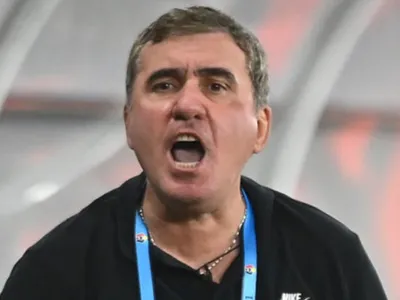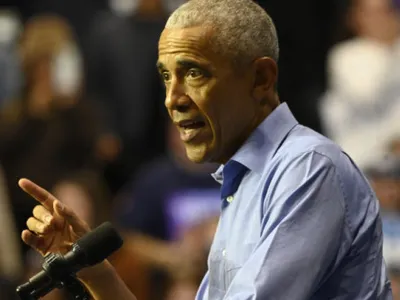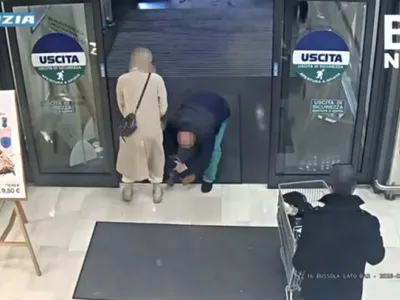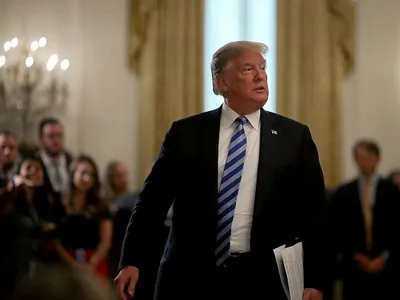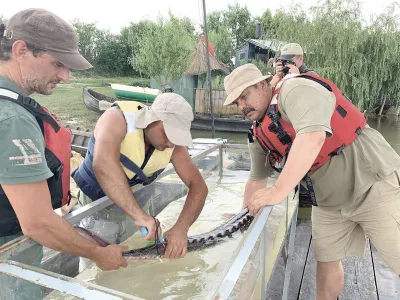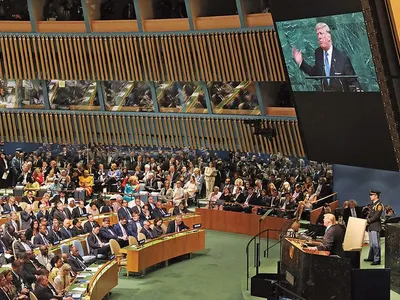Lukoil, lucky oil fueling public tenders in Romania and Bulgaria
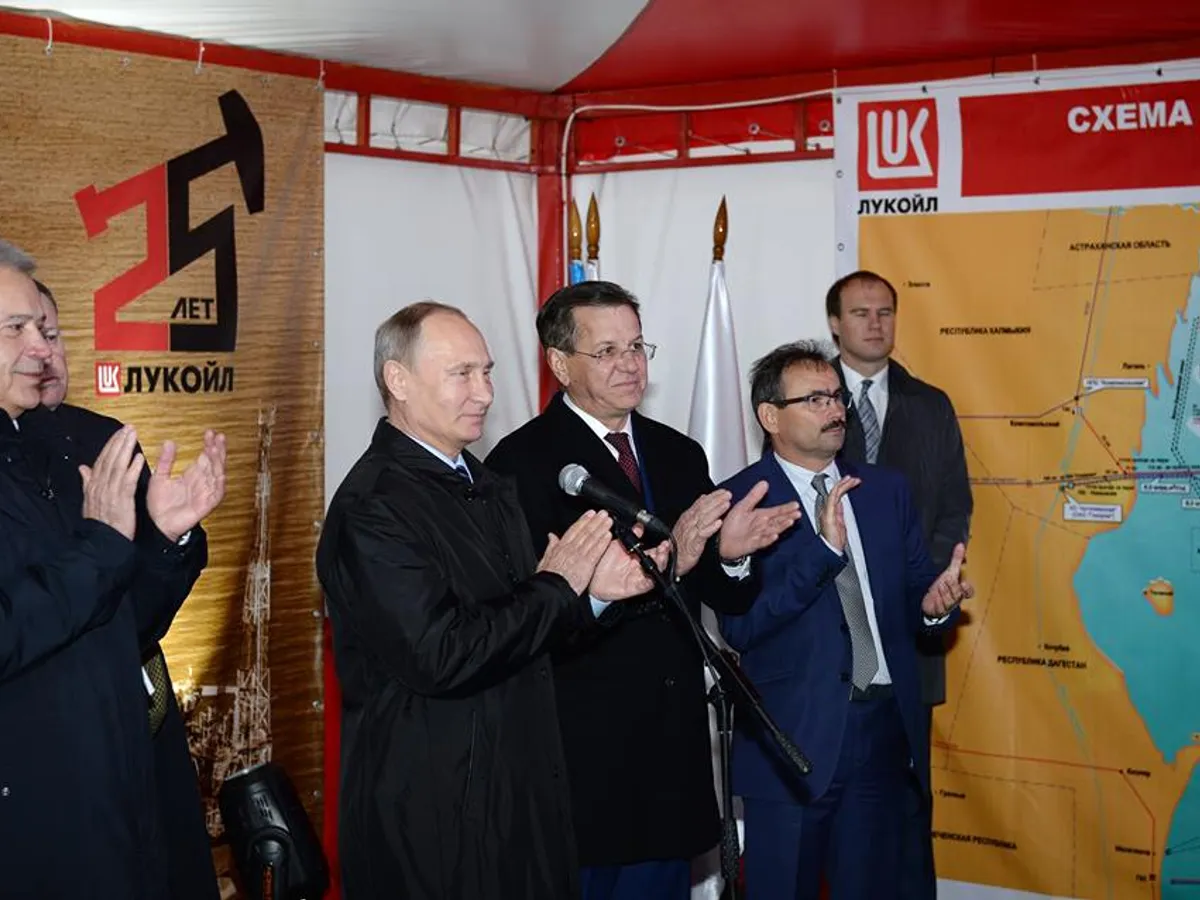
In Romania, Lukoil public contracts revenues top those of OMV Petrom, the largest oil and gas company in the country, and also those of Rompetrol, the second biggest competitor on the market. The Bulgarian Lukoil won more than 99% of the governmental tenders.
Russia's influence on many European countries is mainly fueled by Gazprom, the gas supplier of many EU and non-EU economies. But there's more to this than gas, though not as in sight: the Russian oil. The world market is quite crowded with huge oil and gas companies fiercely fighting for their fair share. However, in the East, there's a company that can play this game and have tremendous financial success, despite investing almost nothing in mass market advertising. Its name is Lukoil it has a secret: a very good connection to the customers. In fact, two secrets: the second is that the customers are not regular people hunted by filling stations chains but public institutions.
You could call this connection a political deal or you could call it a very intelligent business strategy. What's certain is that, in Romania, Lukoil public contracts revenues top those of OMV Petrom, the largest oil and gas company in the country, and also those of Rompetrol, the second biggest competitor on the market. In fact, Lukoil's public contracts pie slice reaches 40% whereas OMV Petrom's is at 20%.
Still, this means competition. A concept not to be encountered in Bulgaria when it comes to gas public contracts: the Bulgarian Lukoil won more than 99% of the government tenders (almost half a billion euros) whereas competitors like Shell, OMV or even NIS (subsidiary of Gazprom) combined couldn't get more than a few hundreds of thousands euros in years.
The beginnings: privatized refineries
The Romanian and Bulgarian subsidiaries of Lukoil share the same path. It all started in the late '90s with one refinery being bought by the Russian oil and gas giant in every of the two neighboring countries. The impact was more profound on Bulgaria as Lukoil bought the country's only refinery, located in the port of Burgas. The one that Lukoil acquired in Romania was just one out of ten refineries operating in the country at the beginning of the '90s, after the communist regime fell.
The sale of the Petrotel refinery in 1998 to Lukoil was a purely political move, Valentin Ionescu (former minister of Privatization, 1997 – 1998, in the right wing government) said for Digi 24 TV news channel: "There was an official visit to Romania of the LUKOIL Board of Directors chairman and that was it, the privatization of the refinery was decided. Petrotel's privatization has been decided due to political reasons."
Interestingly, the two refineries were sold when both countries were led by pro-Western reformist regimes with no political ties to the communists who had run the two East European countries until 1989. The same remark was delivered, in a study on Russian influence in Bulgaria, by Dimitar Bechev and Nikolay Barekov: "In Bulgaria there is only one oil refinery, located in Bourgas, owned by Lukoil. The paradox is that the gas contracts with Russia as well as the sale of the refinery to Russians was signed between 1997 and 2001, during the pro-American reformist and right-wing government, headed by Mr. Ivan Kostov."
The plan: protection for Lukoil at any cost
In both countries, the post-privatization period was a turbulent one for Lukoil. But, at the same time, very profitable.
First of all, the Petrotel refinery's debts of over $ 54 million to Bancorex (state-owned bank) were initially postponed for 25 years (by Prime Minister Radu Vasile in 1998) and then completely cancelled by Prime Minister Adrian Năstase in 2002. Lukoil also received tax incentives when it privatized the Romanian refinery. "I objected to the facilities granted to the Russian investor, which no investor had ever benefited from and no foreign investors had ever received. Many facilities were granted, given that this privatization took place within a few days. No prior analysis has been made", former minister of Privatization Valentin Ionescu told Digi 24 TV news channel.
The authors of the above mentioned study on Russian influence in Bulgaria noticed that taxation was a tricky issue in Sofia too: "Much ink has been spilled on the friendship between Prime Minister Boyko Borisov and the head of Lukoil in Bulgaria Valentin Zlatev, described by none other than US Ambassador John Beyerle in a leaked cable as an influential behind-the-scenes powerbroker. Although Borisov does not deny his relations with the boss of the energy firm in Bulgaria, his government carried out a probe against the large company on suspicions of tax avoidance and petrol smuggling in 2011. The investigation was inconclusive and Lukoil was allowed to resume full operation, even if no proper metering devices have been installed – which was the main issue at stake. Bivol, an independent whistleblower website associated with Wikileaks, allege that the Rosenets sea terminal operated by Lukoil, is a de facto tax-free trading zone outside the purview of the Sofia government."
Romanian prosecutors step in
But it was not all fun and games for Lukoil in Romania. A criminal procedure that started in 2014 almost shut the refinery down. According to the prosecutors, the board members of Lukoil Romania allegedly had created a complex mechanism that consisted "in setting, accepting and practicing sales prices below cost prices and in purchasing raw material at prices to the detriment of the company in order to outsource the profit and not to pay profit tax to the state budget."
Prosecutors also noted in the indictment document that "the mechanism developed by Petrotel Lukoil for the decapitalization of its own resources was put into practice from the moment of importing the raw material - crude oil, continuing with the costly activity of processing and ending with the export - intra - EU delivery operations, all these stages of the mechanism working as one, interdependently."
Parts of this gearing, the prosecutors noted down, were Lukoil's subsidiaries in Moldova, but also in Bulgaria, Hungary and in other EU countries.
As Henrik A. Sorensen summarized for "Bulgaria Analytica", "In 2014, the Romanian state prosecution commenced proceedings against the local Lukoil subsidiary for money laundering and fraud, and estimated the damages at EUR 1.8 billion. Lukoil has been so far successful in repelling the case, but has not been acquitted and the investigation continues."
PM acting as Lukoil supporter
A few details of the enquiry are, however, worth recalling: on October 6, 2014, prosecutors seized the facilities at Petrotel Lukoil. On the same day, Prime Minister Victor Ponta's office received a letter from Andrey Bogdanov, the general manager of Petrotel Lukoil, asking for support, and Russian ambassador to Bucharest Oleg Malginov expressed his hope that the investigation would be carried out objectively, taking into account the interests of the business environment, the workers, "as well as the interests of the Russian-Romanian relations", given that Lukoil was the largest Russian investment in Romania.
Very unusually, the distraint was lifted the very next day, on October 7, 2014, after Prime Minister Ponta publicly stated the following: "Justice is independent, it does its duty and I suspect that, if something bad happens, the 3,500 people (employees of Lukoil) will come to me. I just hope and want to find the legal solution to, on one hand, punish those guilty and, on the other hand, to retrieve the situation without blowing everything up with
Eventually, the world did not perish: for years later, in October 2018, a court acquitted Petrotel Lukoil board members of all the allegations. The decision stupefied everybody. The trial, however, hasn't reached the final stage and a definitive decision is yet to be made.
National security grounds
Bulgaria, Henrik A. Sorensen explained, was even worse at proving the state's ability to control Lukoil's activity: "following years of unexplicable price anomalies, the national antitrust regulator discovered market manipulation and anticompetitive behavior by six retail market participants, of which Lukoil has by far the greatest share. In this case, the law caps the possible fine at 10% of annual turnover, i.e. for Lukoil this would translate into a payment to the tune of 300 million Euro. There is a suspicion of more significant breaches however, which if investigated may trigger claims exceeding the ones in Romania, i.e. commensurate or exceeding the value of Lukoil’s entire Bulgarian operation."
Sorensen also briefly described how political involvement is key in connection to Lukoil's success: "Not surprisingly, Lukoil and its top management team in Bulgaria have immense political clout. A good example is the saga with oil product metering that started in 2011. While all traders and retailers have installed the meters as required by the law, Lukoil has staunchly resisted and quoted
Bulgaria's war-time stock, Lukoil's 255 million euros job
The failure of the two states to investigate the allegedly illegal activities of Lukoil has allowed the Russian company to expand its business to an unprecedented extent. One might even say that the only way state authorities in both countries dealt with Lukoil was by throwing loads of money to the company.
According to the ELVIS database, which gathers public money tenders awarded in several European countries and makes the data available online, Lukoil Bulgaria has received over 470 million euros in contracts between 2011 and 2017. Most of the contracts, 24, worth over 255 million euros, were awarded by the State Reserve and War Stations Agency. An agency that "Pursues the state policy in the field of the accumulation, maintenance and use of country's state reserves and war-time stocks in accordance with national security interests; Organizes and controls the accumulation, maintenance, refreshing and accounting of state stocks and war-time stock", according to its own website. It also points out that "The main stocks piled into the system of state reserves are: fuels; chemicals; foodstuffs; ferrous and non-ferrous metals; spare parts; timbers and paper; medical goods, hospital goods, appliances and tools."
Six of the 24 contracts, totaling more than 41 million euros, were awarded after being “negotiated without publication”, according to ELVIS. Basically, there was no real tender, the contracts were concluded without any public notice allowing other companies to bid for the contract.
13 other contracts (out of 24) were awarded by the Bulgarian State Reserve and War Stations Agency after a procurement process was carried out. Even so, the only company bidding was, again, Lukoil. A tender competition proved to be, in fact, not competitive at all. In only five situations (out of 24), the Bulgarian State Reserve and War Stations Agency received more than one bid for a tender but Lukoil competitors stood no chance: the contracts were awarded to the Russian company.
All contracts for fuel supplying concluded by the State Reserve and War Stations Agency of Bulgaria were granted to Lukoil. The total amount in six years: 255 million euros.
Routine: negotiated (procedure) without publication
Stolichen Avtotransport, the public transport company in Sofia, awarded (according to ELVIS) "only" two contracts to Lukoil, both in 2012. The total amount paid for fuel supplying was over 56 million euros. Both contracts were concluded after being "negotiated without publication".
The Bulgarian railway company BDZ - Freight Transport also awarded to contracts to Lukoil Bulgaria for a total of over 41 million euros. One of the contracts was signed in 2013, the latter in 2017. The first deal was concluded after being "negotiated without publication". For the sum paid as a result of the contract awarded in 2017 Lukoil had to compete with itself: although a tender was carried out, the only bid came from the Russians.
The "sister" railway company BDZ - Passenger Transport has concluded two contracts with Lukoil (in 2013 and 2017) amounting to 28.5 million euros. Once more, the contract signed in 2013 have been "negotiated without publication" and the one in 2017 was easily granted to Lukoil as the company was the only one to place a bid in the tender competition.
Many tenders, only one bidder: Lukoil
The Central Authority for Procurement, a structure of the Bulgarian Finance Ministry, concluded two contracts with Lukoil, totaling over 38 million euros.
None of the contracts was awarded after being "negotiated without publication", there were public notices and all companies interested in supplying fuel to the Authority could have bid. But it seems that there's a Bulgarian tradition of having bids only from Lukoil. Well, tradition was maintained and Lukoil won both tenders.
Bulgaria's Ministry of Education and Science purchased Lukoil fuel worth over 14 million euros following three procurement procedures. The first was carried out in 2011 and was worth over eight million euros. The second, in 2014, was almost six million. Both procedures were just “negotiated without publication”.
The third one, however, in 2017, was transparent, but the amount was ridiculous compared to regular contracts awarded to the Russian company: less than 170,000 euros. Apparently, not even small money was left out, so Lukoil bid having no competition.
The municipality of Nessebar has concluded 11 contracts with Lukoil, totaling 4.5 million euros. For most of the tenders there was just one bid (belonging to Lukoil, of course). In 2013, for a contract of almost two million euros, the municipality didn't bother to carry out a tender. Instead, "negotiated without publication" and awarded the contract to Lukoil.
The National Security Service sponsors the Russians
The Bulgarian Interior Ministry procured fuel of almost eight million in 2017 after carrying out five tender competitions. For every one of the five there was only one bid, Lukoil's.
Other Bulgarian state institutions in the justice and security sector who turned to Lukoil were the National Security Service (the Bulgarian "secret service" in charge of protecting high officials) and the General Security Directorate of the Ministry of Justice in Sofia.
The National Security Service has awarded two contracts, almost three million euros in total (one in 2013 and the other in 2016). Both were concluded after "negotiated (procedure) without publication".
The Justice Department was supplied with fuel of over one million euros following three tenders. Lukoil was the only bidder for each of those tender competitions.
The competition is Lukoil's partner
One would not be entirely right to say that Lukoil has no competition in Bulgaria for public budget contracts. There is a company that, according to ELVIS, has delivered fuel to public institutions amounting over 100 million euros in recent years. The Ministry of Defense and Stolichen, the public transport company in Sofia, combined have concluded contracts worth over 70 million euros. The Ministry of Defense alone has concluded 24 contracts for 38 million euros. Stolichen Avtotransport, however, preferred just one contract in 2015, worth more than 33 million euros. Not to overcomplicate things, Stolichen chose the easy "negotiated without publication" way.
The fuel providing company is called Bent Oil and if it looks to be treated very similar by public institutions to Lukoil, there's a good explanation for that: Bent Oil is a very close partner of, yes, Lukoil. The partnership is made on the company's website: "Deliveries are made from all petroleum bases of Lukoil Bulgaria in the country. Establishing itself as a reputable carrier, the company has signed contracts with LUKOIL and through them it is the only external carrier for deliveries to their counterparts, different municipalities in the country, sites of the Ministry of Interior, schools in the system of the Ministry of Education, Metropolitan Autotransport, Bulgarian State Railways (BDZ) and others. In 2011, the company opened offices in the oil bases of LUKOIL in Sofia, Plovdiv, Ruse and Pleven jointly with International Asset Bank AD. This allows on-site payment of the required fuel quantities."
Also according to ELVIS data, companies such as Shell, OMV, Nis (subsidiary of Gazprom) and others have not concluded any public contracts in Bulgaria or, best case, have collected a maximum of several hundreds of euros over a period of years. This means more than a thousand times less money compared to Lukoil Bulgaria.
More tenders in Romania than Kazmunaygaz and OMV
Unlike Bulgaria, Romania is not quite a playground for Lukoil. To start with, the main two competitors are Rompetrol (subsidiary of Kazmunaygrup) and OMV Petrom (a joint venture of the Austrian OMV and Petrom, the former state owned oil and gas company.
Based on the ELVIS database, Lukoil Romania appears to have concluded contracts with public Romanian institutions worth more than 535 million euros during the 2011 – 2017 period. That is a bit less than the money paid by the Bulgarian state to Lukoil (470 million euros for Lukoil Bulgaria and 100 million euros to Bent Oil, Lukoil Bulgaria's carrier; it is worth mentioning, though, that this is, practically, the whole amount of money that the Bulgarian state spent over a six years for being supplied with fuel). At the same time, the Romanian market is at least twice as large than the Bulgarian one. So how's Lukoil Romania doing compared to its strong competitors?
Also according to ELVIS, Rompetrol concluded public contracts (2011-2017) of 467 million euros.
The major surprise, though, is that OMV Petrom (partially owned by the state) has received only 280 million euros in public contracts for fuel, as shown by ELVIS data.
The tax payer, a better client than the everyday driver
So, whereas Lukoil Bulgaria and its partner, Bent Oil, have no competition for public contracts in Bulgaria, Lukoil Romania received 535 million (public) euros out of a total amount of 1.28 billion euros. This means a pie slice as large as 40% of the pie (the "pie" being "baked" entirely using public money).
And it's getting even better for Lukoil Romania: the Russian company was awarded 40% of the public money for fuel supplies although its filling stations market share is only 20%. According to companies revenues in 2017 made public by the Ministry of Finance, Lukoil Romania had filling stations revenues of 5.97 billion lei (1.3 billion euro) and a profit of 85.74 million lei (18.63 million euros) after years of losses. Rompetrol, however, reported filling stations revenues of 9.05 billion lei (1.9 billion euros) and a profit of 168.54 million lei (36.63 million euros). OMV Petrom, by far, was the champion of filling stations revenues, with 15.2 billion lei (3.3 billion euros) and a profit of 320.51 million lei (69.67 million euros).
Police, Penitentiary and Prosecutors, fueled by Lukoil
When it comes to the most generous Romanian institutions to fuel suppliers, the Romanian General Police Inspectorate has to be mentioned: the four contracts concluded with Lukoil Romania are worth 350 million euros (for the 2011 – 2017 period).
Another Romanian law enforcement institution is the proud sponsor of the Russian company: The Supply, Management and Repair Base of the National Penitentiary Authority paid 38 million euros for fuel. Even the National Anticorruption Directorate awarded two million euros contracts to Lukoil.
When prosecutors started to investigate Lukoil Romania, a few years ago, the National Anticorruption Directorate explained that the Romanian public procurement electronic system does not allow public institutions to ban companies from bidding even though indicted. The National Anticorruption Directorate added that the lowest price being one of the main criteria for awarding a contract, Lukoil Romania's bid proved to be the best.
The most generous sponsor of Rompetrol was the public transport company owned by the Bucharest municipality that awarded to the Kazmunaygaz subsidiary contracts worth over 180 million euros (2011 - 2017).
As for OMV Petrom, the largest amount (100 million euros) paid by a public institution was delivered by Romsilva, the manager of the state owned forests.
Lukoil Romania decline to comment on the public fuel procurement issue. Sources in OMV Petrom implied that complying with the rules of public procurement could not make a company rich in state contracts.



